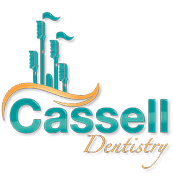The Importance of Regular Dental Check-ups in Preventing Gum Disease
At Cassell Dentistry, we’re all about big, bright, healthy smiles. We know achieving and maintaining optimal oral health is crucial to living your best life. One key element in preserving your smile is regular dental check-ups. This blog will discuss the significance of these check-ups, focusing on how they can prevent gum disease and protect your overall health.
Dental Checkups and Gum Health
Regular dental check-ups are like a well-deserved spa day for your mouth. They involve thoroughly examining your teeth and gums by our skilled dental professionals. These check-ups, typically recommended every six months, allow us to detect any potential issues early on, including the development of gum disease.
Your gums are the foundation of your oral health; they support and protect your teeth while anchoring them in place. When your gums are healthy, they form a tight seal around your teeth, keeping bacteria at bay. However, if gum disease, known as periodontal disease, begins, it can lead to significant oral and overall health problems.
What are the Symptoms of Gum Disease?
Gum disease often sneaks in quietly, with subtle symptoms that can be easily overlooked. That’s why regular check-ups are crucial in catching it before it progresses. Some common symptoms of gum disease include:
- Bleeding Gums: If your gums bleed when you brush or floss, it could be an early sign of gum disease.
- Swollen or Red Gums: Healthy gums should be pink and firm. If they appear red and puffy, it may indicate gum inflammation.
- Persistent Bad Breath: Chronic bad breath that doesn’t improve with good oral hygiene can indicate gum disease.
- Receding Gums: Gums pulling away from your teeth can expose the roots and lead to tooth sensitivity.
- Tooth Mobility: If your teeth start to feel loose, it’s a concerning sign of advanced gum disease.
Remember that gum disease can sometimes progress without noticeable symptoms, so regular dental check-ups are vital in detecting it early.
What are the Risk Factors for Gum Disease?
Certain factors can increase your risk of developing gum disease, including:
Poor Oral Hygiene: Inadequate brushing and flossing allow plaque to build up on your teeth and gums, leading to gum disease.
Smoking and Tobacco Use: Tobacco use is a significant risk factor for gum disease, as it weakens the immune system and reduces blood flow to the gums.
Family History: If gum disease runs in your family, you may be genetically predisposed to it.
Medical Conditions: Conditions like diabetes, certain autoimmune disorders, and hormonal changes (such as during pregnancy) can increase the risk of gum disease.
Certain Medications: Some medications can affect gum health, such as those that reduce saliva flow or cause gum overgrowth.
Awareness of these risk factors and discussing them with your dentist can help tailor your oral care plan for maximum protection against gum disease.
Can Gum Disease Affect Overall Health?
Gum disease is not just about your oral health. There is a well-established link between gum disease and overall health, with research showing connections to conditions such as heart disease, diabetes, and even pregnancy complications.
When gum disease progresses, it can lead to inflammation throughout your body. This systemic inflammation can contribute to developing or exacerbating various health issues.
For example, gum disease may increase your risk of heart disease because the inflammation in your gums can affect the arteries in your heart. Additionally, uncontrolled gum disease can make it harder to manage conditions like diabetes.
Research suggests a connection between gum disease and adverse pregnancy outcomes, including preterm birth and low birth weight. This underscores the importance of maintaining excellent gum health, especially during pregnancy.
Can Gum Disease Lead to Tooth Loss?
Yes, gum disease is one of the leading causes of tooth loss in adults. As it advances, gum disease can damage the structures that support your teeth, including the bone. When this support weakens, teeth may become loose and need to be extracted.
By attending regular dental check-ups, we can catch gum disease in its early stages, preventing it from progressing to the point where tooth loss is a significant risk. We always aim to help you maintain your natural teeth and beautiful smile.
What Treatments Are Available for Gum Disease?
The good news is that gum disease is treatable, especially when detected early. The treatment approach will depend on the stage and severity of the disease. Here are some common treatments:
Scaling and Root Planing: This is a deep cleaning procedure to remove plaque and tartar from the root surfaces of your teeth. It helps to eliminate bacterial deposits attached to the root surface.
Antibiotics: Sometimes, your dentist may prescribe antibiotics to help control infection and reduce inflammation.
Surgical Procedures: Advanced cases of gum disease may require surgical intervention, such as flap surgery or bone grafts to repair damaged bone tissue.
Ongoing Maintenance: After treatment, it’s essential to maintain regular dental check-ups and follow good oral hygiene practices to prevent gum disease from returning.
Reserve Your Cleaning Today
At Cassell Dentistry, we’re committed to helping you maintain a healthy and vibrant smile. Regular dental check-ups are your first defense against gum disease and its potential impact on your overall health. So, don’t put off your next dental appointment! Contact us today!

